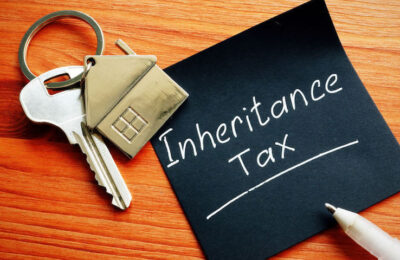For many people it’s been a tough few years, so it’s little wonder that growing numbers of people are typing ‘can’t pay tax bill’ into search engines, hoping to find some advice.
If you’re currently struggling to find the money to pay your tax bill, it’s important you act as soon as possible. Indeed, HMRC strongly recommends you do. By doing so, you could avoid hefty penalties which will only make your situation worse. In this article we show you what steps you need to take next.
Step 1 – Submit your tax return
If you believe you can’t pay your tax bill, you need to find out for sure. The first thing you should do is complete your Self-Assessment Tax Return (or ask your accountant to do so). You have until midnight on 31st January each year to file it online.
Once you have completed your tax return, you will know exactly how much you owe HMRC. If you can’t afford to pay it, then a good first step is to pay as much as you can. This will keep the interest you owe to a minimum.
Step 2 – Set up a ‘Time to Pay’ arrangement
In many cases, you can easily set up a ‘Time to Pay’ plan online without the need to speak to anyone at HMRC. A Time to Pay plan allows you to spread your tax bill over a longer period of time. You won’t have to pay late payment penalties, but you will have to pay interest on the amount you owe.
To be eligible to set up a Time to Pay plan automatically, you need to:
- Have filed all of your previous tax returns
- Owe £30,000 or less
- Apply within 60 days of the payment deadline
- Be in a position to pay off the debt within 12 months
- Not have any existing payment plans or debts with HMRC
While you have 60 days from the payment deadline to set up a plan, remember that you will incur penalties if you do this after 31st January. It’s much wiser to arrange your repayment plan before this date.
Can’t pay tax bill and don’t meet the criteria?
If you don’t meet the criteria above, you can’t set up a Time to Pay plan online. However, you can still do so over the phone. HMRC will ask you for information such as the following:
- How much you can repay monthly
- Whether you owe any other taxes
- The amount you earn
- What you usually spend in a month
- What savings and investments you have
It’s important to note that HMRC will expect you to use savings and assets to reduce your debt as much as possible.
Whatever your circumstances, it’s a good idea to set up a Time to Pay plan before the 31st January deadline. This will help you avoid penalties. It’s particularly important to meet the deadline if you currently have an existing Time to Pay plan. For example, if you have plan that ends in March, and you can’t pay the new tax bill by 31st January, you must phone HMRC as soo as you can. This is important. If you don’t pay your new bill by the deadline, your current Time to Pay plan becomes forfeit.
Can’t pay other taxes?
If you are having problems paying other taxes such as VAT, employers PAYE or Corporation Tax, contact HMRC as soon as possible. You may be able to set up a repayment plan, similar to ‘Time to Pay’.
Is HMRC obliged to let me set up a Time to Pay plan?
No. HMRC is not obliged to let you set up a Time to Pay plan. This is another reason why it’s important to try and agree one without delay. HMRC may be more willing to help if you get in touch as soon as you know there’s a problem.
How to avoid Time to Pay plans
While a Time to Pay plan can be a lifeline if you’re struggling to pay your Self-assessment bill, it’s better to avoid owing HMRC money in the first place. If you have trouble budgeting, you can set up a budget payment plan for future bills. This will allow you make weekly or monthly payments towards your next bill.
If you set up a budget payment plan, you’ll need to have a good idea of how much tax you will owe. If you use cloud accounting software, you can use this to work out how much take you owe to date. You can also use HMRC’s Self-assessment tax calculator to estimate how much you need to pay.
How THP can help you
If you ask THP to handle your Self-assessment Tax Returns, we can file them well ahead of the deadline (if you provide us with all the information we need). That way, you’ll know exactly how much you’ll owe and will be able to budget accordingly. It will also save you the time and hassle of submitting your own return. Best of all, our expert accountants can often find ways you can legitimately lower your tax bill, making it much less likely that you’ll have to fall back on a Time to Pay plan.
About Karen Jones
Having worked for one of the world’s largest accountancy firms, Karen Jones uses her tax knowledge and skills to help clients obtain substantial reductions to their tax liabilities.
With an expanding portfolio of tax clients, Karen enjoys the variety her work brings her and particularly likes working with new businesses and people. With a growing number of tax clients, she frequently faces a variety of challenges and relishes the experience she gains as she solves them.
Karen likes the THP ethos: “I like the way the team has a professional, but friendly and down-to-earth approach – it creates a productive atmosphere that benefits everyone.”
Karen’s specialist skills:
- Personal Taxation
- Tax Efficient Planning
- Trust Administration












